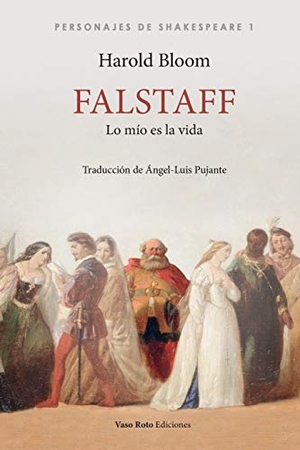Für statistische Zwecke und um bestmögliche Funktionalität zu bieten, speichert diese Website Cookies auf Ihrem Gerät. Das Speichern von Cookies kann in den Browser-Einstellungen deaktiviert werden. Wenn Sie die Website weiter nutzen, stimmen Sie der Verwendung von Cookies zu.
Cookie akzeptieren
Harold Bloom
Falstaff, lo mío es la vida
- Vaso Roto Ediciones S.L
- 2020
- Taschenbuch
- 184 Seiten
- ISBN 9788412163872
Harold Bloom realiza un acercamiento literario, crítico y ante todo humanista a los personajes que considera más relevantes de Shakespeare. El primero: Falstaff. Dos años antes de su muerte, Harold Bloom inició una serie de cinco libros en los que realizaba un análisis literario, crítico y, ante todo humanista, de los personajes de Shakespeare. El primero se lo dedicó a Falstaff con quien Bloom se sentía especialmente identificado en su forma de amar la vida. Si Hamlet es embajador de la muerte, Falstaff lo es de la vida, Bloom, quien interpretó al Caballero Gordo en los escenarios del British Art Center de Yale y, anteriormente, en
Mehr
Weniger
zzgl. Versand
in Kürze